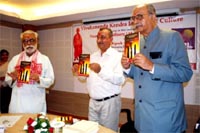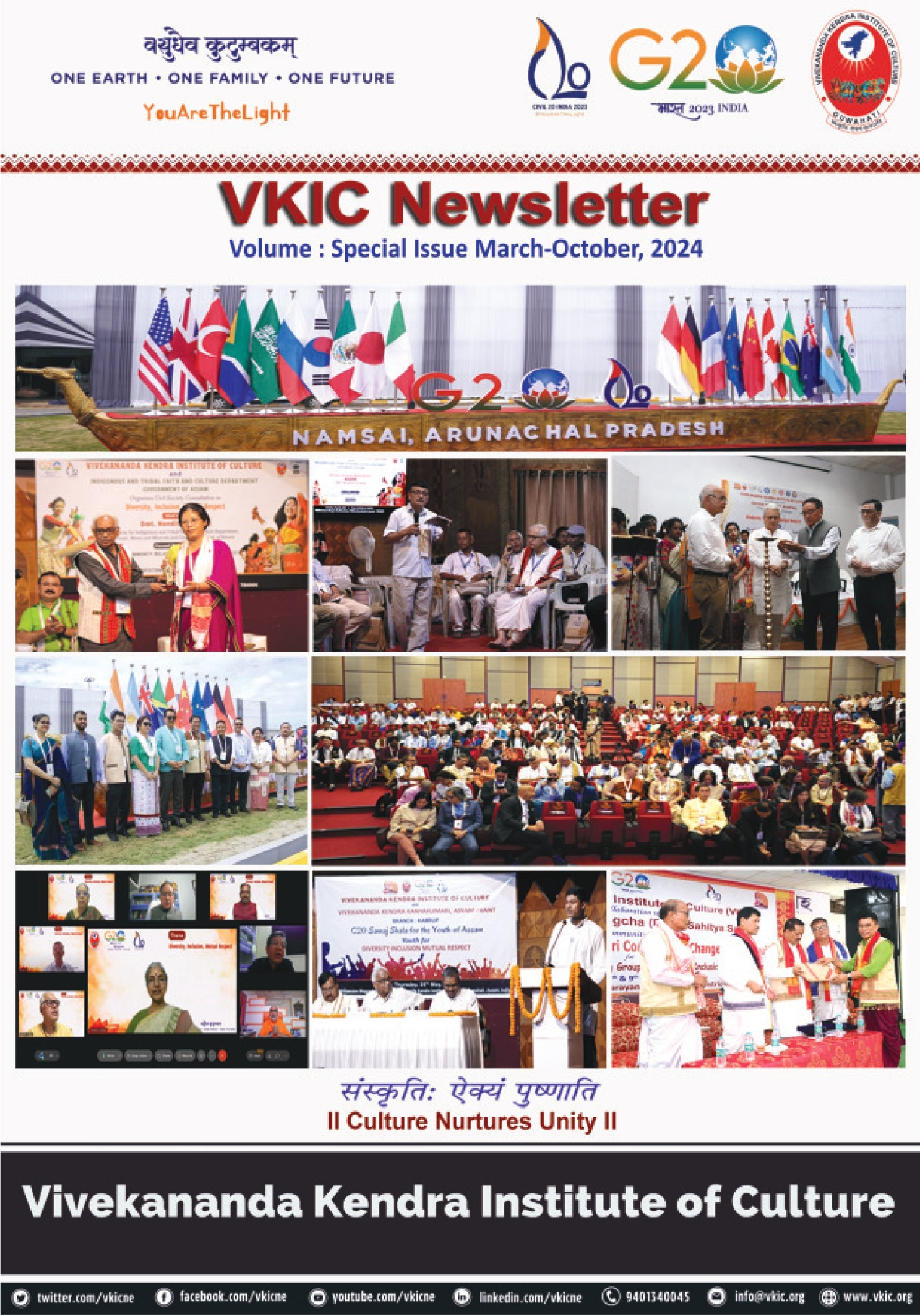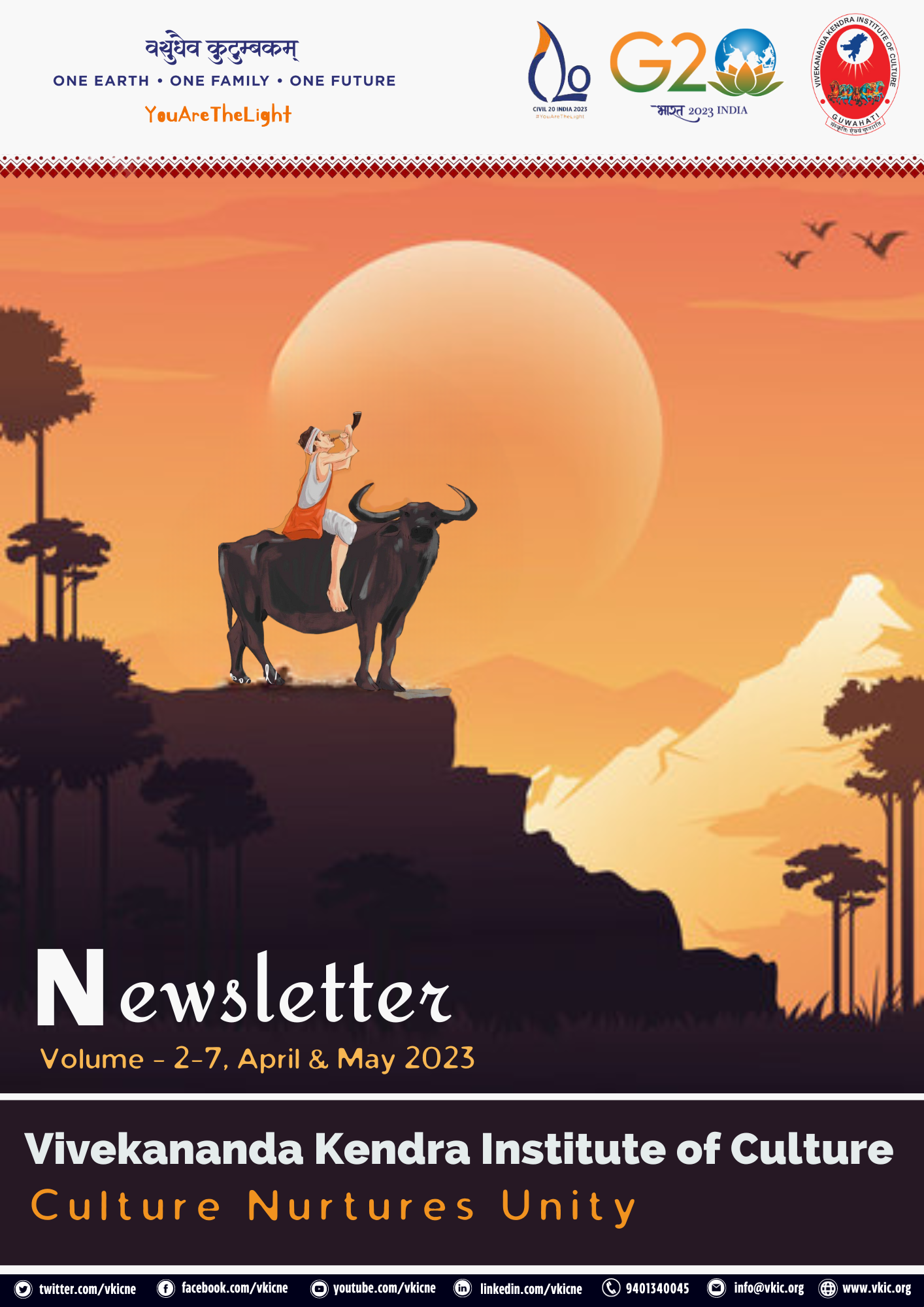Call For Papers : Traditional Ecological Knowledge and Culture of Agriculture in the Communities of Northeast India
The agriculture sector of India in contemporary times faces two challenges. One, intensification of land use to raise food production for the rising population, and two, the challenges posed by natural resource degradation and climate change caused particularly by variable rainfall and extreme weather events.

 The latest VKIC Publication, The Main Ceremonies of the Khasi was released on the occasion of the inauguration of the NRL CONFERENCE HALL at the Vivekananda Kendra Institute of Culture [VKIC], Guwahati, by Shri Dipak Chakravarty, Managing Director, Numaligarh Refinery Ltd. Originally written in Khasi by KS Marbaniang, Sitimon Sawian and Wallamphang Roy, they have been translated into lucid English by the well known author of Shadow Men, Bijoya Sawian.
The latest VKIC Publication, The Main Ceremonies of the Khasi was released on the occasion of the inauguration of the NRL CONFERENCE HALL at the Vivekananda Kendra Institute of Culture [VKIC], Guwahati, by Shri Dipak Chakravarty, Managing Director, Numaligarh Refinery Ltd. Originally written in Khasi by KS Marbaniang, Sitimon Sawian and Wallamphang Roy, they have been translated into lucid English by the well known author of Shadow Men, Bijoya Sawian. Chairman VKIC, Dipok Kr Barthakur, delivering the welcome address mentioned that this year is significant for VKIC as it the birth centenary year of Eknathji Ranade, the founding father of Vivekananda Kendra and Vivekananda Rock Memorial. His vision to establish a centre to study the culture of Northeast of India led to the inception of Vivekananda Institute of Culture (VKIC) in 1993.
Chairman VKIC, Dipok Kr Barthakur, delivering the welcome address mentioned that this year is significant for VKIC as it the birth centenary year of Eknathji Ranade, the founding father of Vivekananda Kendra and Vivekananda Rock Memorial. His vision to establish a centre to study the culture of Northeast of India led to the inception of Vivekananda Institute of Culture (VKIC) in 1993.
